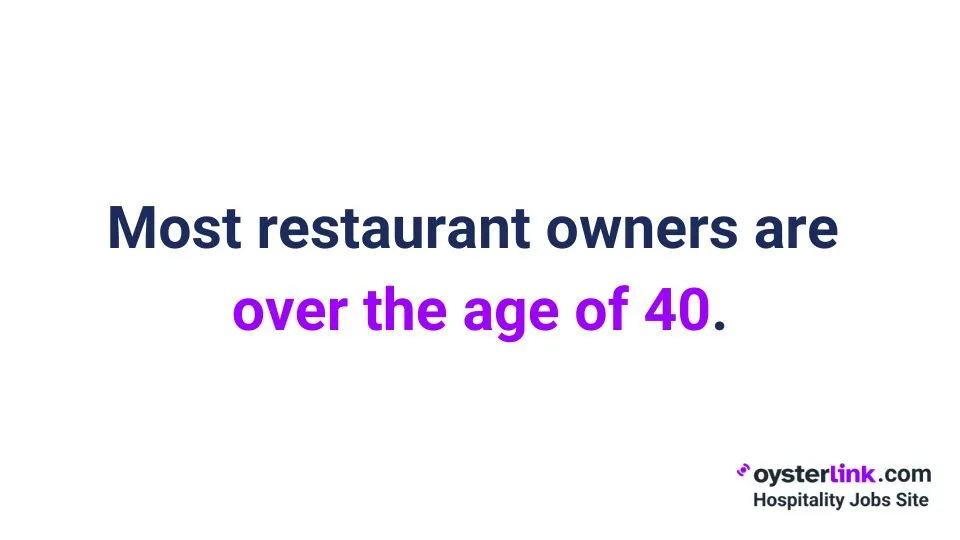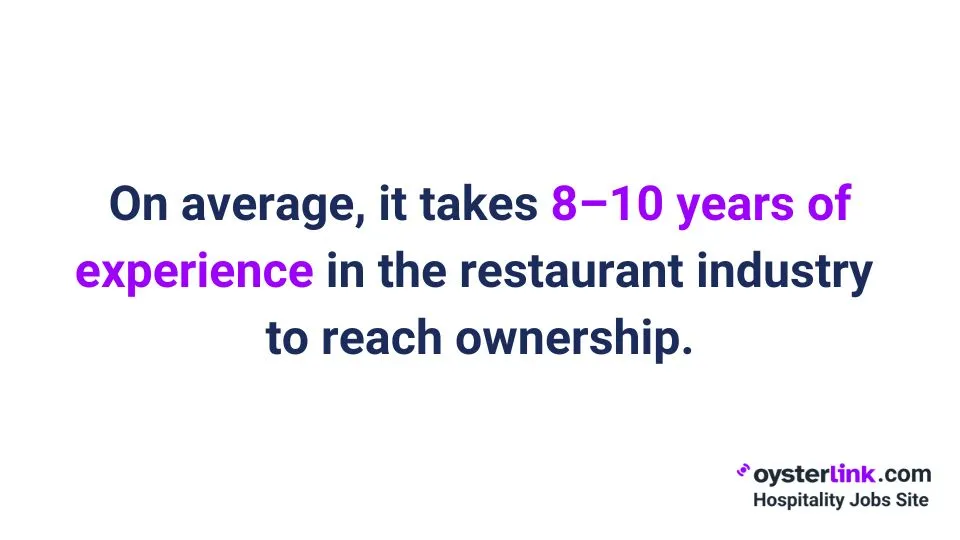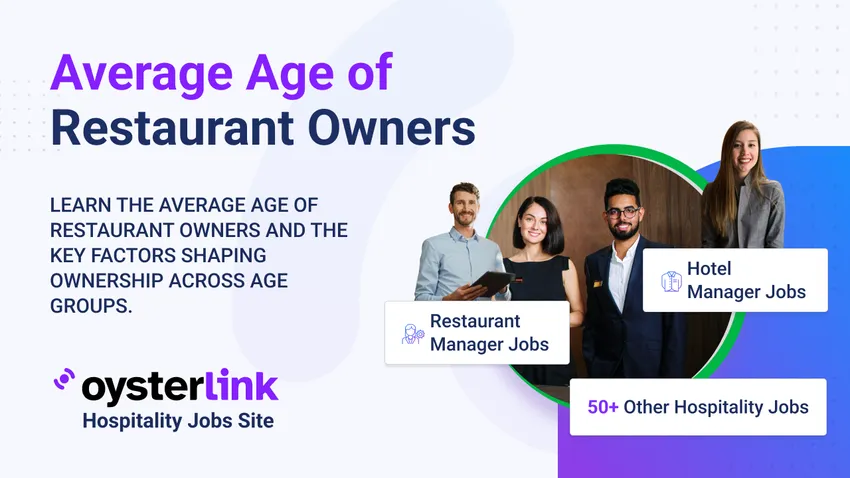Restaurant ownership is often the result of years of experience and hard work.
Many successful owners start in entry-level positions like dishwashing or serving, gradually building their way up through the ranks.
In this article, we’ll explore the typical age of restaurant owners, the journey to ownership and the factors that influence when someone might take the leap into owning their own establishment.
What Is the Average Age of Restaurant Owners?
Current data indicates that most restaurant owners are over 40 years old.
This statistic underscores a trend where many owners have accumulated substantial industry experience, often having started their careers in entry-level positions before advancing to ownership roles.

Notably, about 54.5% of restaurant owners are male, while 45.5% are female, illustrating a relatively balanced gender representation compared to other sectors
Minimum Age Requirements for Restaurant Ownership
Starting a restaurant comes with specific age requirements that vary by state.
Most states set 18 as the minimum age for business ownership, but restaurant operations face additional age-related rules due to food handling and alcohol service requirements.
State-by-state legal requirements
The rules for young restaurant owners differ across states.
Some of the states that completely prohibit minors from opening their own businesses include Colorado, Illinois, Minnesota and Oregon.
Texas, California, Delaware, Nevada, Wyoming and Montana offer more flexibility, allowing minors to form Limited Liability Companies (LLCs).
Yet these young owners still face practical limits on daily restaurant operations.
License and permit age restrictions
Restaurant permits follow strict age guidelines. Food handlers need proper certification, and most states require food handlers to be at least 14 years old.
Alcohol service adds another layer — nobody under 21 can legally handle or serve alcoholic beverages.
So, while there may not always be a direct age restriction for business ownership in some states, food vendor licenses often require applicants to be at least 18.
Special Considerations for Young Owners
Restaurant ownership under 18 presents unique challenges, but it’s still possible for young entrepreneurs to own a business with the help of adult co-signers for business documents and licenses.
Some may start by partnering with an adult permit holder who supervises their food service business while they gain experience.
Family-owned businesses and trust arrangements also offer smart alternatives, giving young restaurateurs a chance to learn the ropes.
This hands-on experience becomes invaluable when they are ready to fully take on ownership of their restaurant venture.
Career Progression to Restaurant Ownership
Restaurant ownership starts with hands-on experience. The numbers speak clearly: 80% of restaurant owners and 90% of restaurant managers began their careers in entry-level positions.
Typical timeline from entry-level to owner
Success stories in restaurant ownership often start behind the line or on the dining room floor.
Future owners typically spend their early days as Line Cooks, Servers or Dishwashers.
The path to ownership usually takes 8–10 years, with stops at key positions like Sous Chef, Kitchen Manager and General Manager.
Moving through different roles builds crucial skills. Restaurant professionals who work both front- and back-of-house positions gain the full picture of restaurant operations.

Education and training requirements
Restaurant owners combine practical skills with formal education.
While degrees aren't mandatory, many successful owners choose culinary school or business management programs to sharpen their skills.
Additionally, food safety certifications and alcohol service permits are crucial, ensuring compliance with industry regulations.
Common career paths by age group
Each generation brings its own approach to restaurant ownership.
Young entrepreneurs from Gen Z and millennial groups embrace technology and fresh concepts, while seasoned owners often stick to proven traditional paths.
Young restaurant owners show particular interest in:
- Chef's table concepts and tasting menus
- Creative multi-course offerings
- Earth-friendly business practices
- Digital solutions for operations
In contrast, older generations may focus on maintaining time-tested business models, emphasizing classic dining experiences and more hands-on management styles.
See also: Interview With Gustavo Montes: From Dishwasher to Entrepreneur – A Journey to Success
The Journey to Restaurant Ownership With OysterLink
Restaurant ownership is a journey shaped by years of experience across all areas of the kitchen and dining room.
Most successful owners emerge in their 40s, equipped with knowledge gained from working every position — from washing dishes to managing operations.
Each generation brings its own strengths to the table: seasoned owners offer financial stability and valuable wisdom, while young entrepreneurs inject energy and innovation into the industry.
This blend of perspectives keeps the restaurant world dynamic and ever-evolving.
For those navigating the path to restaurant ownership, OysterLink offers valuable resources, including interviews with successful restaurateurs, insights into industry trends, career advice and the overview of labor laws.
Whether you’re just starting out or looking to expand your business, OysterLink provides the tools and community to help you succeed in the competitive restaurant industry.









Loading comments...